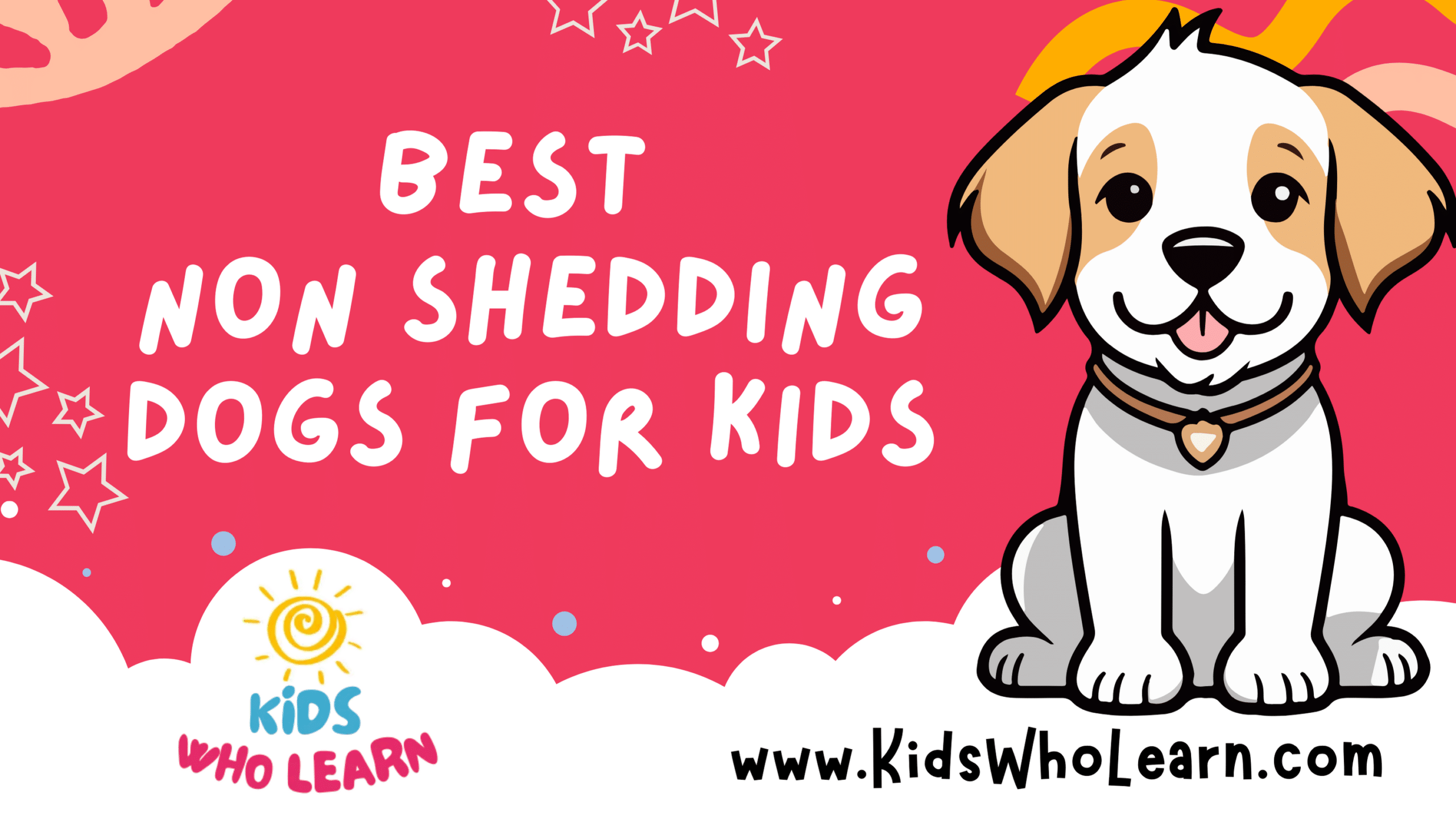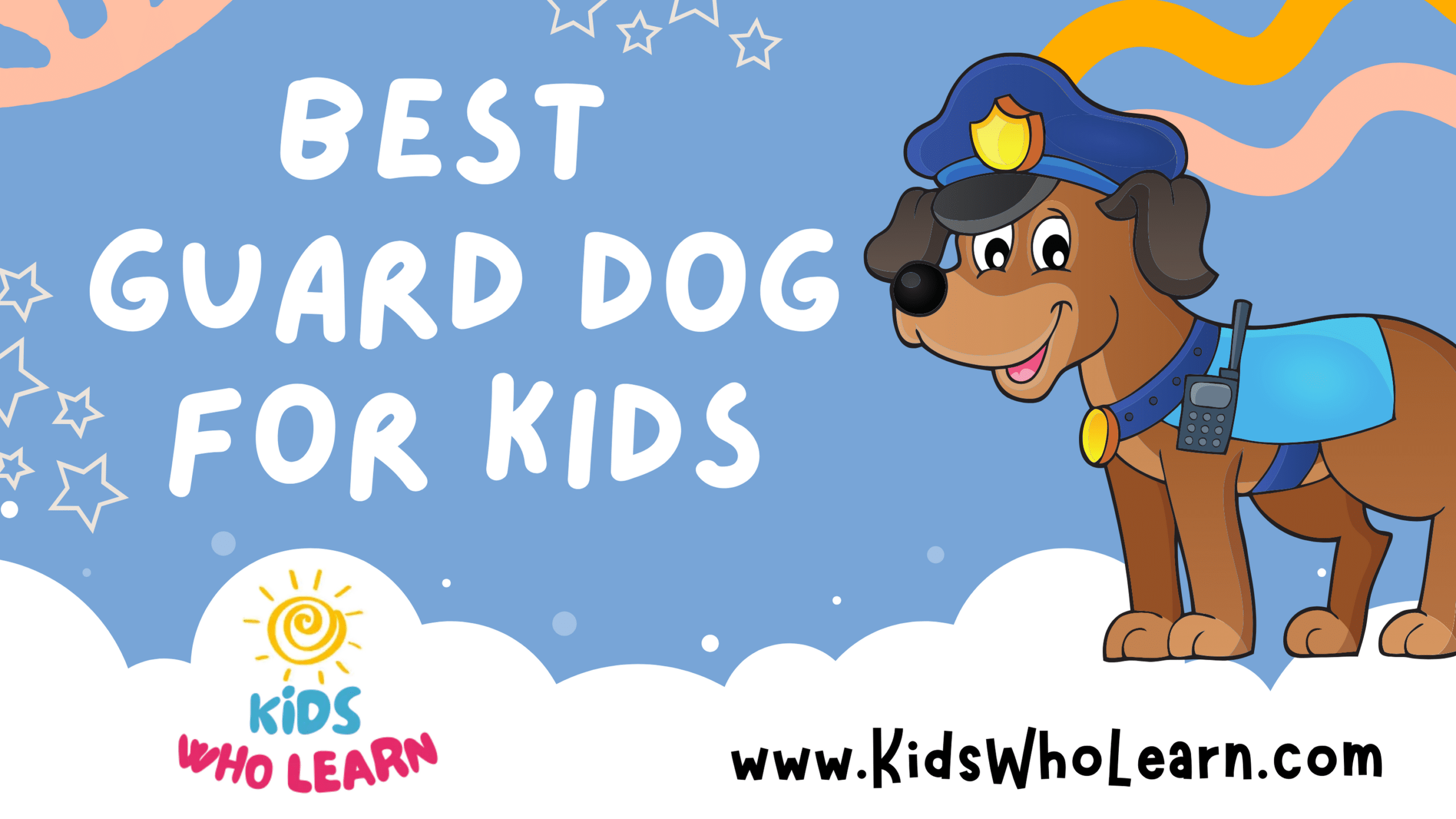Selecting the best dog for a family with children involves balancing many factors such as temperament, size, and energy levels. However, for many households, one of the primary considerations is finding a dog breed that doesn’t shed excessively. Non-shedding dogs are often preferred for several reasons: they can be easier to clean up after, and they are commonly considered better for individuals with allergies.
When searching for the ideal non-shedding companion for kids, it is important to consider not just the amount of hair the dog leaves behind, but also its compatibility with children. Dogs that are known for their gentle temperament, patience, and playfulness are often the best candidates for families. While no dog is completely hypoallergenic, certain non-shedding breeds are known to produce fewer allergens, making them a favorable choice for homes where allergies are a concern.
Key Takeaways
- Non-shedding dogs are often chosen to minimize clean-up and reduce allergen exposure.
- A dog’s temperament is as significant as its shedding properties when selecting a pet for children.
- No breed is completely hypoallergenic, but some non-shedding dogs are better suited for families with allergy concerns.
Understanding Non-Shedding and Hypoallergenic Dogs
When considering the best non-shedding dogs for kids, we focus on breeds that minimize allergic reactions and keep the home free of excess fur.
What Makes a Dog Non-Shedding
Non-shedding dogs have coats that lose hair less frequently than typical breeds. Their hair growth cycle is longer, meaning the hair falls out less often, which reduces the amount of fur around the home. These breeds typically have a single layer of hair, rather than a double coat like many shedding dogs. This characteristic is particularly important in maintaining a clean environment for children.
Hypoallergenic Breeds and Allergy Considerations
Hypoallergenic dogs are breeds that are less likely to cause allergies in humans. It is crucial to understand that no dog is completely hypoallergenic, but some breeds produce fewer allergens than others. For instance:
- Poodle: Known for their intelligence and curly coat that traps dander.
- Bichon Frise: Small in stature with a playful disposition and a coat that doesn’t readily release hair or dander.
- Schnauzer: Their distinctive wiry coat and loyal nature make them great companions that also happen to be good for people with allergies.
The protein that triggers allergies is found in a dog’s dander (skin flakes), saliva, and urine. Choosing a hypoallergenic breed can reduce the presence of these allergens. However, it is important for potential pet owners to spend time with a breed before making a decision, as individual sensitivities to dog allergens may vary.
Top Non-Shedding Breeds for Families with Kids
We often see families looking for dog breeds that are not only great with children but also have minimal shedding. Here, we unveil some of the best non-shedding dogs that are known for their compatibility with kids.
Poodle: A Family Favorite
The Poodle comes in three sizes – Standard, Miniature, and Toy – all of which are excellent for families. Renowned for their intelligence and low-shedding coats, Poodles are often a top choice. Their hypoallergenic fur makes them particularly suitable for families with allergy concerns.
Bichon Frise: Playful and Gentle
Bichon Frises are small, cheerful dogs sporting a fluffy, white coat that requires regular grooming to keep shedding at bay. Their playful nature and patience make them an ideal playmate for kids.
Havanese: The Sociable Companion
Havanese dogs boast a long, silky coat that doesn’t shed much, but does require maintenance to prevent tangles. These dogs are small, sturdy, and enjoy being part of the family activities, always eager to snuggle and play.
Shih Tzu: The Loyal Friend
The Shih Tzu is a small, sturdy dog with a heart full of love for children. They have a luxurious coat that sheds very little, and despite their regal appearance, they are often playful and dedicated to their families.
Coton de Tulear: The Happy-Go-Lucky Pup
Lastly, the Coton de Tulear is a small breed with a cotton-like coat, which is as low-shedding as it is soft to the touch. They are known for their bright and bubbly personality, making them a joyful addition to any home with children.
Important Considerations for Choosing a Dog
When we select a dog for a family with kids, we prioritize breeds known for their agreeable temperament, manageable size, and maintenance needs that align with our lifestyle.
Temperament and Kid-Friendliness
Understanding a dog’s temperament is crucial as it directly affects its interaction with children. We look for breeds that display a consistent and gentle disposition. Patience and the ability to tolerate the energetic behavior of kids are key traits in a dog. For example, breeds like the Poodle and the Bichon Frise are typically good-natured and able to bond well with children. Successful integration also hinges on proper training, reinforcing behaviors that promote a safe and happy coexistence.
- Good with Kids: Poodle, Bichon Frise
- Training Needed: Positive reinforcement, early socialization
Size and Energy Levels
The size of the dog often influences its energy level and how well it will fit into our homes and lifestyles. Small to medium-sized dogs like the Havanese or Miniature Schnauzer can be great for kids as they’re easier to manage and still have enough energy to play. On the other hand, their energy needs to be directed positively through regular exercise and playtime. Too much pent-up energy can lead to undesirable behaviors, so we ensure our schedule accommodates the dog’s activity needs.
- Preferred Sizes: Small – Medium
- Energy Management: Daily walks, playtime
Dog Grooming and Maintenance
The level of grooming a dog requires is an important factor, especially when looking at non-shedding breeds. These breeds typically need regular grooming to keep their coat in good shape and to reduce allergens. While they don’t shed, which is easier for upkeep, breeds like the Labradoodle or Portuguese Water Dog require regular brushing and professional grooming. We consider the time and financial commitment to maintaining a healthy coat and integrating it as part of our responsibility towards the pet.
- Grooming Needs: Regular brushing, professional grooming
- Non-Shedding Breeds: Labradoodle, Portugues Water Dog
Training and Socialization
When selecting the best non-shedding dogs for kids, it’s crucial to consider the training and socialization aspects. These are foundational to ensuring that your dog interacts well with kids and other pets, and can comfortably fit into your family’s routines and household.
Basic Obedience and House Training
We can’t overemphasize the importance of basic obedience training for non-shedding dogs when they are still puppies. This training lays the groundwork for blossoming into well-mannered adult dogs. Here’s an overview of the key areas:
- Commands: Start with fundamental commands such as sit, stay, come, and down. These are instrumental in managing your dog’s behavior.
- Potty training: Establish a consistent schedule and designated area for bathroom breaks. This helps prevent accidents in the house.
- Crate training: It can provide a safe space for your dog and assist in house training.
Socialization with Children and Other Pets
Proper socialization is essential for building a dog’s confidence and comfort around children and other animals. Below is a structured approach for integrating socialization into your dog’s routine:
- Early Introduction: Introduce your dog to kids and other pets during their sensitive period, which is typically before 14 weeks of age.
- Positive Reinforcement: Use treats and praise to encourage calm and gentle interactions.
- Supervised Playtime: Monitor play sessions to ensure safety for both your dog and children.
- Gradual Exposure: Gradually increase your dog’s exposure to various people, pets, and environments to enhance their adaptability.
Health and Nutrition
When we consider non-shedding dogs for kids, our focus on health and nutrition centers around breed-specific issues and the importance of a balanced diet.
Common Health Issues in Non-Shedding Breeds
Non-shedding breeds, while advantageous for children with allergies, may be predisposed to certain health conditions. Poodles, for example, are prone to hip dysplasia and ear infections due to their non-shedding coats trapping moisture in the ear canal. Schnauzers may suffer from pancreatitis and hyperlipidemia. Regular veterinary check-ups are critical to managing these health concerns.
| Breed | Common Health Issues |
|---|---|
| Poodle | Hip Dysplasia, Ear Infections |
| Schnauzer | Pancreatitis, Hyperlipidemia |
Dietary Needs and Nutrition
Each breed comes with specific nutritional requirements. Poodles, being active, may require a diet high in protein to support muscle maintenance, while the Bichon Frise might need carefully portioned meals to avoid obesity. Hypoallergenic dog foods, free from common allergens like chicken, beef, and wheat, can benefit both the dog and kids with sensitivities.
- (Protein) Enriched Diet: Supports active breeds like Poodles.
- Controlled Portions: Prevents weight gain in less active breeds such as the Bichon Frise.
Integrating the right balance of nutrients, coupled with awareness of breed-specific health issues, ensures a healthy life for non-shedding dogs and a safe environment for kids with allergies.
Finding the Right Dog for Your Family
We understand that adding a new member to your family is an exciting and significant step. It’s crucial to make an informed decision to find the perfect non-shedding companion for your children, which involves knowing where to look and what to consider.
Researching Breeders and Adoption Options
When we’re looking for a new canine family member, it’s important to seek reputable breeders or adoption options. For breeds like Havanese, Bichon Frise, Poodle, Maltese, and Shih Tzu, which are known for being good with children and low-shedding, thorough research is paramount. Here are specific tips to guide you:
- Identify Reputable Breeders:
- Ensure the breeder is registered with a recognized kennel club or breed-specific organization.
- Visit the breeder, observe the environment, and meet the parent dogs to gauge the puppies’ health and temperament.
- Exploring Adoption Options:
- Contact local shelters and rescue organizations specializing in the breeds of interest.
- Look for adoption events or search online databases for puppies or adult dogs in need of a home.
Considerations for Puppies and Adult Dogs
The choice between a puppy or an adult dog has a significant impact on our families, so here’s a quick comparison to help us decide:
| Consideration | Puppies | Adult Dogs |
|---|---|---|
| Training | Require extensive training and socialization | Often come with some training |
| Energy Levels | High energy, need for play and engagement | May be more settled and less demanding |
| Time Commitment | Demand significant time for care and training | Require less intensive care |
For specific non-shedding breeds, we might consider the following:
- Havanese Puppies: They are playful and demand time for training and socialization but are excellent companions with a gentle disposition.
- Bichon Frise Puppies: Known for their friendly nature, they thrive on interaction and can be a great addition to an active family.
- Poodle Puppies: Intelligent and eager to please, but their high intellect means they need mental stimulation to stay content.
- Maltese Puppies: They are affectionate and bond closely with family members, but they might require careful handling by young children.
- Shih Tzu Puppies: They have a friendly and outgoing nature but will need regular grooming to keep their coat in good condition.
Dog Care Essentials
When selecting a non-shedding dog for our family, it’s crucial to understand the care essentials that ensure our furry friend stays healthy and happy.
Daily Exercise and Indoor Living
Non-shedding dogs, while ideal for indoor living due to their minimal hair loss, still require regular exercise to maintain their health. We must commit to:
- Daily Walks: A schedule of at least 30 minutes to 1 hour of walking per day.
- Indoor Play: Engage in interactive activities inside the house to stimulate their minds and satisfy their play instincts.
Dealing with Dog Dander and Cleanliness
Although non-shedding dogs are more hypoallergenic, they can still produce dander. To manage this:
- Regular Bathing: Bathe our dog every 4-6 weeks to reduce the presence of dander.
- Cleaning Regimen: Use a damp cloth to wipe down our dog’s coat weekly, and vacuum frequently with a HEPA filter to control dander and dust.
Frequently Asked Questions
In this section, we address common queries regarding non-shedding dogs that are suitable for families with children. We cover a range of breeds that are known for their friendliness towards children, low shedding, or hypoallergenic qualities, and ease of care, especially tailored for busy or first-time dog owners.
What are some large dog breeds that are good with children and have minimal shedding?
The Standard Poodle stands out as an elegant and friendly breed that’s great with children and has a low-shedding coat. The Portuguese Water Dog also offers a mix of intelligence, energy, and a single-layer coat that doesn’t shed much.
Which calm dog breeds are suitable for families with children and are low-shedding?
The Bichon Frise is known for its gentle demeanor and hypoallergenic coat that makes it a great companion for kids. Another great choice is the Shih Tzu, a friendly and placid breed with a luxurious coat that sheds minimally.
What are the top hypoallergenic dogs for families with kids?
The Poodle, in its toy, miniature, or standard size, is highly favored for its hypoallergenic coat and friendly nature. The Schnauzer, which comes in miniature, standard, and giant sizes, also has a hypoallergenic coat and a protective yet loving temperament ideal for children.
Can you recommend hypoallergenic dog breeds that are easy for first-time owners to care for?
For first-time owners, the Maltese is a hypoallergenic breed that is easy to train and care for. The Havanese is also suitable for novices, offering a cheerful disposition, a hypoallergenic coat, and adaptability to various living environments.
Could you suggest some small, hypoallergenic dog breeds that are low maintenance?
The Yorkshire Terrier is a small, hypoallergenic breed with a personality larger than its size and requires minimal grooming. The Miniature Schnauzer is also hypoallergenic and is known for its intelligence and ease of training, making it a good choice for those seeking a low-maintenance companion.
What are the best hypoallergenic dog options for busy families with children?
Look for breeds like the Labradoodle, which combines the friendliness of the Labrador Retriever and the low-shedding coat of the Poodle, or the Goldendoodle, with a similar mix of traits, as they are both known for their intelligence, sociability, and low maintenance needs.










